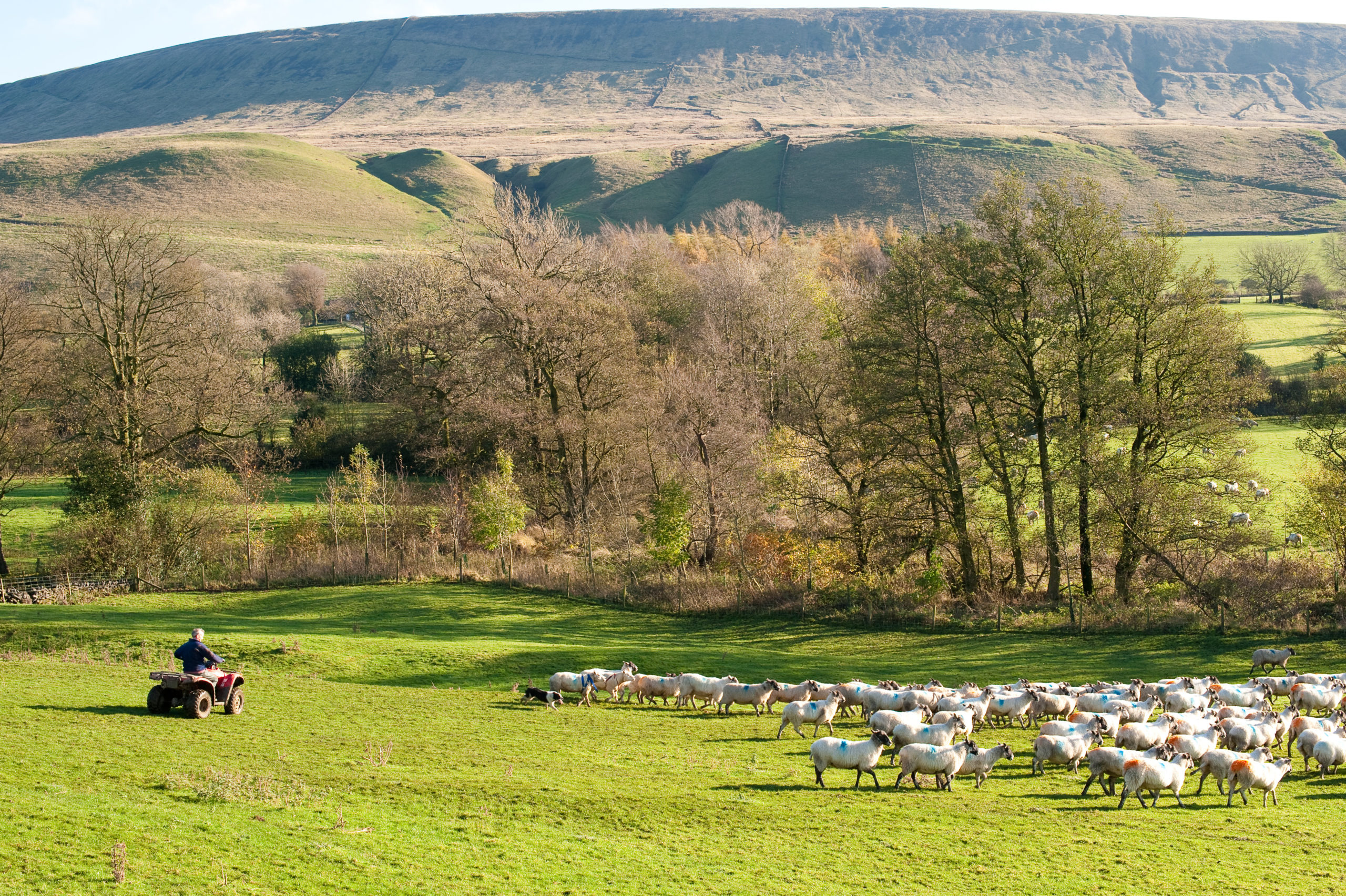This session presented findings from a piece of research commissioned by Forest of Bowland AONB, looking to use a ‘natural capital approach’ to assess the presence of ‘public goods’ at a farm scale; and to assess if payments for these goods were adequate to compensate for the loss of other farm subsidies over the next few years. We also looked at the implications for the changes in land use on the farmer and their business, and on the landscape of Pendle Hill.
We had a useful discussion with farmers and practitioners about the strengths and weaknesses of the natural capital mapping model, and how a variety of assets (soil, trees, grassland) and management types could affect the carbon emissions and sequestration of the land and the farming practices. We also discussed how farmers might resist adapting to such an extreme change in land use and the difficult issues this raises in how the uplands could be farmed in the future. Finally we discussed the impacts of wood-pasture on the aesthetics of the landscape, and the number, breed of livestock and different systems of management it may require.
Issues to take forward include how to influence the levels of payments in the proposed ELM scheme; and to continue feeding these findings into other ‘Tests and Trials’ being carried out by various partners across the Northern Upland Chain local nature partnership.
You will be able to watch a recording of the session here.

